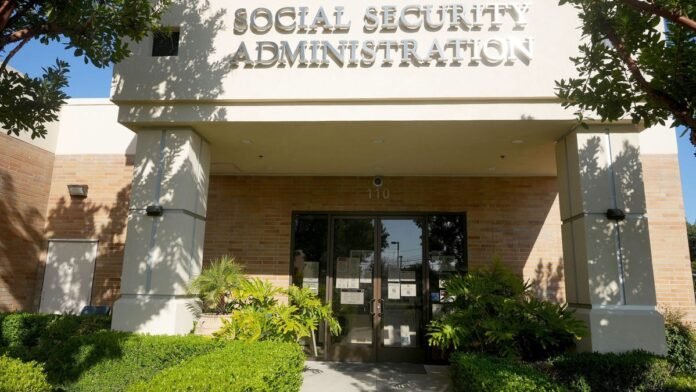
Social Security Administration will stop mailing paper checks
The Social Security Administration says moving away from paper checks improves efficiency and reduces the risk of theft or delays.
Scripps News
For some Social Security recipients, benefit checks might arrive in a lesser amount in the coming months. Meanwhile, some others may have recently gotten a bump in their benefits.
The Social Security Administration said in April it would begin sending notices to recipients who got overpayments in the past. After sending out overpayment notices, the SSA would allow 90 days for recipients to seek a waiver or lower repayment rate. Then, the agency would begin withholding 50% of recipients’ benefits until the overpayment is repaid (after approximately July 24, at the earliest).
Some beneficiaries are set to receive payments on July 23, while the next payment date after that falls on Aug. 1, according to the SSA payment calendar.
Other recipients, however, might have seen their benefits increase. That’s because the Social Security Fairness Act has kicked in for public sector workers whose benefits had been reduced in the past. As of July 7, the SSA said it has processed more than 3.1 million payments to those entitled to the retroactive payment adjustments.
Social Security Administration taking action on overpayments
Some Social Security beneficiaries who have been overpaid could have their monthly benefits cut in half beginning in late July. Overpayments can happen when the SSA incorrectly calculates a person’s benefits, for example, or a beneficiary fails to update a change in income.
Improper payments accounted for less than 1% of the almost $8.6 trillion in benefits paid during fiscal years 2015-2022, according to an August 2024 report from the Social Security Administration’s Office of the Inspector General. Of the nearly $72 billion in improper payments – most of which were overpayments – issued during that time, Social Security had collected all but $23 billion as of September 2023, according to the SSA.
Some public sector workers see payments boosted
Also, the SSA began sending retroactive Social Security Fairness Act payments in February to public sector workers who could not get Social Security or had reduced benefits because their past work wasn’t subject to Social Security taxes, according to the SSA. Those affected recipients included police officers, firefighters, postal workers and public school teachers.
The SSA has paid about $17 billion to those beneficiaries. Earlier this year, the agency said the average amount of the retroactive payment was $6,710.
Because the SSA pays benefits the month after they are due, some recipients may see the change in their benefit amount in the August 2025 payment, the agency said. Since the act became law on Jan. 5, 2025, the agency has received more than 278,000 new claims from people with pensions from work not covered by Social Security and has processed 92% of these, the SSA said.
For some of those who filed a new claim after Jan. 5, 2025, the SSA “may still be working to process your application,” the agency said July 10.
If you think you are eligible for Social Security Fairness Act benefit adjustments, you can file a claim at www.ssa.gov/apply.
If Social Security overpaid you, how do you pay it back?
If you have gotten a notice from the SSA that you received an overpayment, you can repay the overpayment amount by credit card, online bill pay or check. For more information on repayment of overpaid benefits, visit the SSA website.
You can also request a waiver to not repay the overpayment if you believe it was not your fault or if you cannot afford to repay it (or think it is unfair for some other reason), using a form on the SSA website.
Mike Snider is a reporter on USA TODAY’s Trending team. You can follow him on Threads, Bluesky, X and email him at mikegsnider & @mikegsnider.bsky.social & @mikesnider & msnider@usatoday.com
What’s everyone talking about? Sign up for our trending newsletter to get the latest news of the day
